As Cork prepares to vote, we ask: What’s the role of the president?
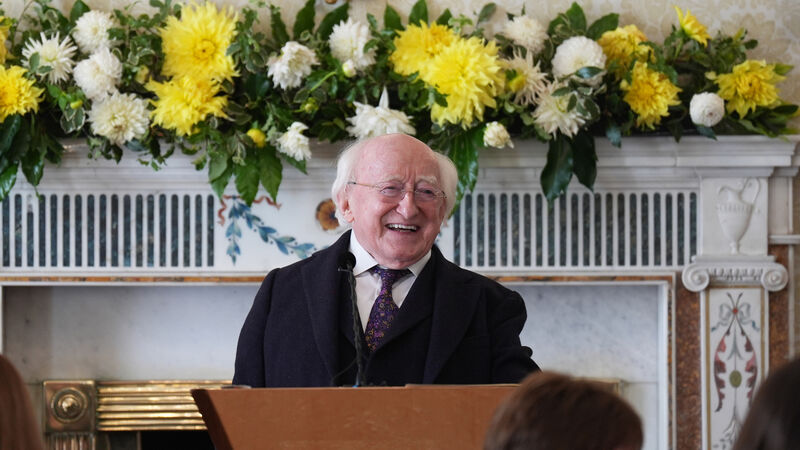
President Michael D Higgins speaking during his final afternoon tea event, on Wednesday, before he leaves Aras an Uachtarain. A former senator, TD, and minister, he is an intellectual who would have been on the left wing of the Labour Party, and he has expanded the role of the presidency considerably during his time in office.
IT’S probably fair to say that most Irish people have a fuzzy, instinctive understanding of what the president of Ireland does.
As our head of State, they’re a slightly remote and official figure, the embodiment of the State, sometimes slightly haughty — if usually warm and kindly — and sometimes even somewhat beloved. (We don’t usually admit it, but our feelings about the president are probably not a million miles from how the Brits used to feel about the late Queen Elizabeth II.)
For the past 14 years, Michael D Higgins has been the President, and it’s a role he has suited, and that has suited him.
A former senator, TD, and minister, he is an intellectual who would have been on the left wing of the Labour Party, and he has expanded the role of the presidency considerably during his time in office.
It would be fair to say he has sailed very close to the wind in his speeches during his time in office, but successive governments have looked at his overwhelming popularity and decided to let discretion overrule valour when it came to picking a fight. As then-taoiseach Albert Reynolds famously said of then-president Mary Robinson: “You don’t argue with popularity ratings of 92%.”
Michael D has behaved impeccably in the execution of the letter of his duties as Ireland’s first citizen, even if his critics have questioned his pushing at the boundaries of the spirit of the role.
As we head to the polls tomorrow, it might be worth taking a look at what the role of the president of Ireland actually entails.
As defined in Bunreacht na hÉireann, Ireland’s Constitution, the president is our head of State, representing the people of Ireland at home and abroad.
The qualifications — over 35 years of age; citizen of Ireland; nominated to stand for election by four local authorities, 20 Oireachtas members, or themselves if they’ve been president once, but not twice — are fairly well rehearsed at this point, regardless of whether or not some think those qualifications are “anti-democratic”.
To be very reductive, the president of Ireland attends public functions, and visits communities, and meets people at Áras an Uachtaráin, the president’s formal residence.
They also give speeches, holding forth on the vision thing. Boy, do they what (see Michael D).
When other heads of state come a-calling, the president receives them, and the president also formally receives new ambassadors to the State, the Áras being their first port of call to present their credentials.
The head of State promotes Ireland overseas, meeting leaders, sometimes when the taoiseach doesn’t want to.
The president is supreme commander of the Irish Defence Forces, consisting of the army, the air corps, and the naval service. However, under the Defence Act 1954, military command is exercised by the government through the minister for defence.
Traditionally, the president is assigned a military aide de camp, a high-ranking Defence Forces officer whose primary role is to attend to the president at all official duties, particularly State ceremonial occasions.
After we hold a general election, Dáil Éireann elects a taoiseach, and the president then formally appoints them, and the other members of the government on the nomination of the taoiseach, after Dáil approval.
Other office holders appointed by the president, on the advice of the government, include judges, the Attorney General, the Comptroller and Auditor General, and commissioned officers of the Defence Forces.
The office of president has two major powers — one involving the dissolution of the Dáil, and the other covering the referring of bills to the Supreme Court.
The president summons and dissolves Dáil Éireann on the advice of the taoiseach, meaning that, following a general election, the president formally calls the Dáil together on the advice of the taoiseach.
If a taoiseach no longer has the support of the majority of Dáil Éireann, the president may choose to call for fresh elections, by signing a proclamation dissolving the Dáil.
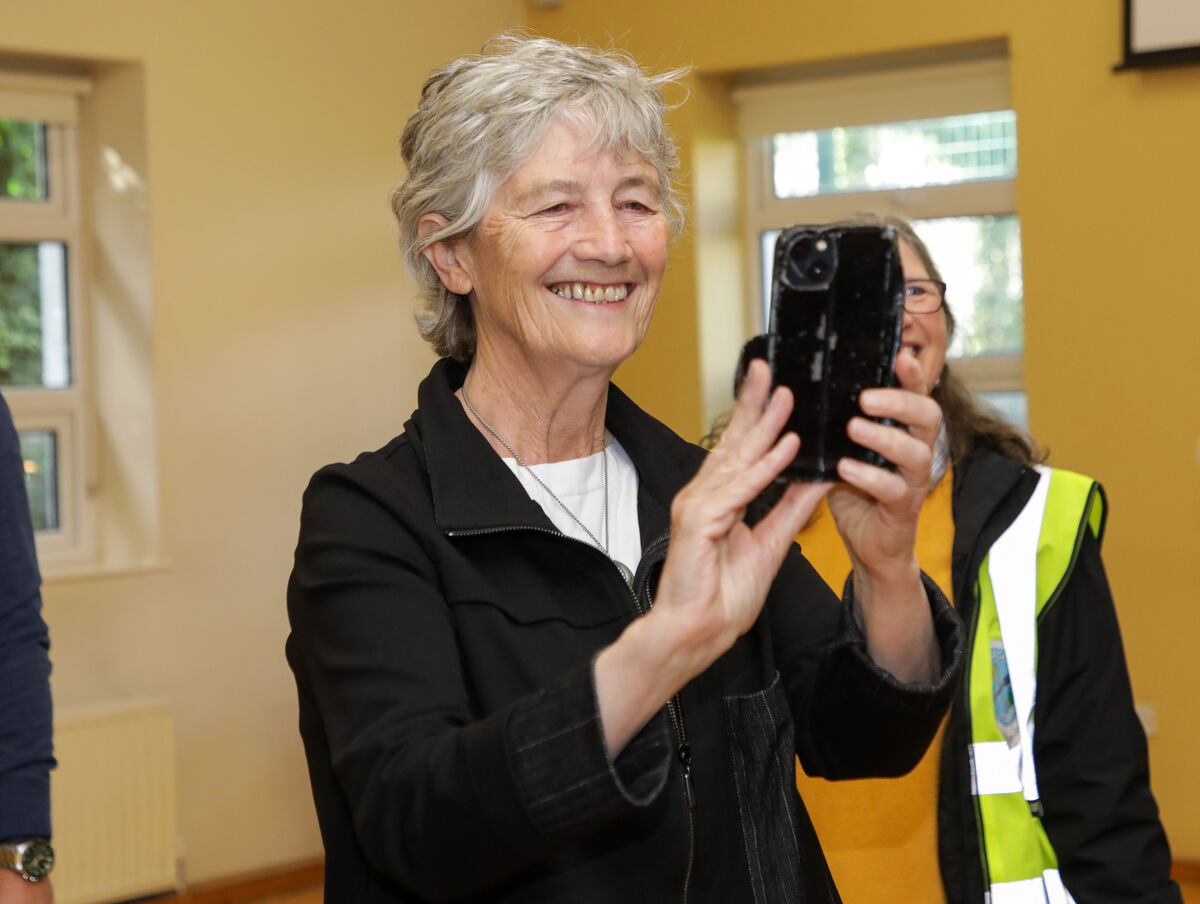
However, and this is something that has never happened since the foundation of the State, the president may also refuse to dissolve the Dáil, in which case members of the Dáil must nominate an alternative government.
Before any new law can come into effect in the Republic of Ireland, the president must sign it. Under Article 25 of the Constitution, a bill can only be signed by the president on the fifth, sixth, or seventh day after it is presented for their signature. There is an exception to this, and the government can ask the president to sign it earlier, but only with the Seanad’s agreement.
The president can also choose to refer a bill to the Supreme Court to determine whether it is consistent with the Constitution, but they must first consult the Council of State.
The Council of State advises the president on key issues and, as outlined in the Constitution, includes among its members the taoiseach, tánaiste, chief justice, and former presidents, and to which the president can appoint up to seven members.
The term of those appointed to the Council of State can last for as long as the president is in office, but the president can decide to terminate the appointment of any of those members.
It is important to note that a president referring a bill to the Supreme Court can have far-reaching, even permanent, constitutional implications.
A bill may be found to be repugnant to the Constitution, sending legislators back to the drawing board, but it may also be found to be constitutional, rendering it effectively bulletproof, and it can never again be challenged in the courts.
To amend the Constitution, the Dáil and Seanad must pass a bill, and citizens then vote on whether to approve that bill in a constitutional referendum.
If the bill is approved by referendum, the president must then sign the bill so that the Constitution can be amended.
The Constitution gives the president the rarely-exercised power to grant pardons, to forgive or commute the punishment of someone convicted of a crime.
Last year, President Higgins granted a posthumous pardon to Sylvester Poff and James Barrett, who were wrongly convicted in 1883 of the murder of Thomas Browne.
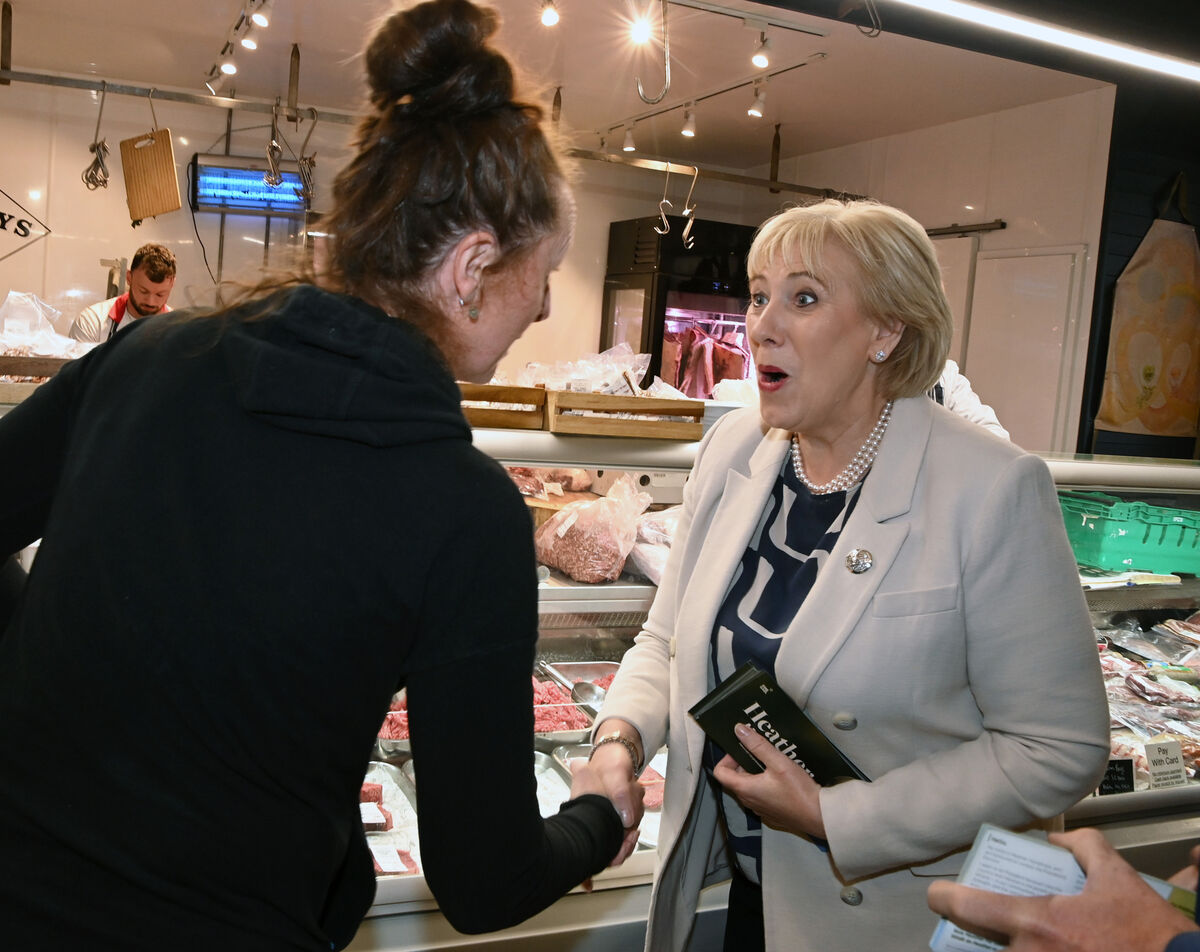
One of the powers of the presidency, which might be exercised in an emergency situation, allows them to call a meeting of either or both Houses of the Oireachtas, having first consulted with the Council of State. This power has never been exercised.
The president may communicate a message or address on any matter of national or public importance to a meeting of either or both Houses of the Oireachtas, but this message or address must first be approved by the government.
The president has two further powers which have never been exercised.
Under Article 22 of the Constitution, if the Dáil and Seanad disagree about whether or not a particular bill is a money bill, relating to taxation or to government spending, the Seanad may ask the president to refer the question to a committee of privileges. This committee is appointed by the president, and consists of an equal number of members of the Dáil and Seanad, and is chaired by a Supreme Court judge.
Under Article 27 of the Constitution and if requested to do so by TDs and senators, the president can, after consulting the Council of State, refer a bill to the people in an ordinary referendum, on the grounds that the bill contains a proposal of great national importance.
Neither of these powers have ever been used.
A president may be removed from office in one of two sets of circumstance.
They may be impeached by either House of the Oireachtas for stated misbehaviour, for example a criminal offence or the misuse of their powers.
The president may be removed if five Supreme Court judges or more decide they have become permanently incapacitated.
Generally, the presidency is a very nice gig, once you get elected, with a salary of about quarter of a million euro a year, top-class nosh, and a mansion on parkland in the middle of Dublin.
Plus, pretty much everyone loves you, even the people who didn’t vote for you.
As we’ve seen these last few months, it’s the application process that’s the killer.
Connolly in control barring a Gallagher-style collapse
Looking at recent polling, Catherine Connolly has what appears to be an insurmountable lead over Heather Humphreys — 19 points, according to yesterday’s Business Post/RedC poll.
For all of that, it’s not hard to imagine another world, where Pat Kenny didn’t read out a tweet, and perhaps President Seán Gallagher, hugely popular at the age of 63, is now completing his second successful term as Ireland’s first citizen.
Maybe, in that alternative reality, he was on the Late Late Show the other night, ruefully telling Patrick Kielty that, no, sorry Paddy, despite all the opinion polls and all the newspaper columns, Article 12 of the constitution specifically bars him from a third term.
(“A person who holds, or who has held, office as President, shall be eligible for re-election to that office once, but only once.”)
That entire scenario is fantasy, obviously, but 14 years ago so, too, would have been the notion that Seán Gallagher might one day become —with all due respect to him — a historical footnote and a presidential ‘what if’ story.
On the night of Monday, October 24, 2011, three days before that year’s presidential election, the businessman and former Dragons’ Den TV personality was running as an Independent candidate — albeit one with an admitted “semi-detached” relationship with Fianna Fáil — and polling at 40% — 12 points ahead of his nearest rival, former Labour Party arts minister Michael Daniel Higgins.
However, during that night’s Frontline debate on RTÉ, host Pat Kenny read out a tweet containing an unsubstantiated allegation about Mr Gallagher.
The tweet purported to come from an official account relating to Martin McGuinness, the now-late Sinn Féin politician who was also running for the presidency.
The tweet — which turned out not to come from an official Sinn Féin account — claimed that a businessman from whom Mr Gallagher had sought funds for Fianna Fáil would be appearing at a press conference the following morning.
Mr Gallagher became visibly flustered on air, and some of the studio audience broke into laughter.
“I was live on RTÉ,” he said subsequently.
“You expect the national broadcaster to have their facts right. I just stood there, trying to process what they were saying.”
It was an intervention which ultimately proved fatal to the Gallagher campaign, and he finished on 35.5% of the final vote, behind Michael D Higgins, on 56.8%.
The rest, as they say, is history.
In 2017, Mr Gallagher would receive a legal settlement of €130,000 from RTÉ, and a “substantial” contribution toward his costs.
It is hard now to imagine how different Ireland might have been without Michael D in the Áras these past 14 years, but Sean Gallagher seems a wise and decent person, and he would no doubt have done a fine job.
An upset of the magnitude of 2011 seems unlikely in the final hours of this presidential election campaign, but there is, as the old saying goes, many a slip twixt cup and lip.
Analysing last week’s Irish Times poll, that newspaper’s political editor, Pat Leahy, pondered what advice he might give Catherine Connolly, riding high on an 18-point lead, in the unlikely hypothetical event that he was her campaign director.
“I’d tell her to get covid and go to bed for the next few days,” he said, “and avoid debates.”
Gavin being on the ballot may offer a chance to send a message
Although Fianna Fáil’s Jim Gavin withdrew from the presidential campaign, rather spectacularly, on the night of October 5, following reports that he had failed to repay €3,300 to a former tenant, he missed the deadline of September 24, and remains on the ballot in tomorrow’s election.
A vote for him will be valid, and his second preferences will also be valid.
It is — hypothetically — possible that Mr Gavin might even win, but even before he withdrew from the campaign, he was trailing third in polls, meaning that a President Gavin is likely to occur only in the realms of pure fantasy.
Still, several Fianna Fáil members have indicated their intention to give him their vote, likely out of (a) party loyalty, (b) bloody-mindedness, and/or (c) for the craic.
Separately, but concurrently, some on the right advocate vote-spoiling as an option for those who feel the current system of nominating candidates for presidential elections is too restrictive.
Some have seized on the idea that electing an unwilling Mr Gavin would spark a fresh election.
A significant subset of that cohort sees conservative Catholic advocate and anti-abortion activist Maria Steen, who last month failed to gather the requisite 20 Oireachtas votes to get her name on the ballot, as their best shot at winning the Áras.
For some on the right, their happiest scenario would see an unwilling President Gavin decline the Áras, paving the way, ultimately, for President Steen.
Others, however, advocate the spoiling of votes by writing ‘Maria Steen’ on the ballot paper, in the hope of sending “a message” to ‘The Establishment’.
This is entirely their right, of course, but you’d wonder what message might ultimately be received, given that The Establishment would likely shrug its collective shoulders and say: “Right so”, and just carry on.
Regardless of whom or how you vote, it seems likely that we will know by mid-afternoon on Saturday who the 10th president of Ireland will be.

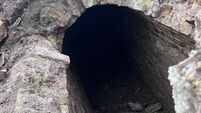




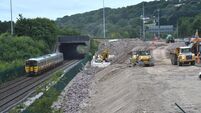



 App?
App?


